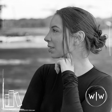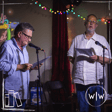Become a Creator today!Start creating today - Share your story with the world!
Start for free
00:00:00
00:00:01

252 Dan Coxon | Writer & Editor of Fiction and Non-Fiction
Dan Coxon is here to chat about his new book, the fourth in his essay anthology series on writing as well as his journey to become a freelance editor.
Support the show on Patreon! 💖 And get extended episodes, ad-free and a week ahead of everyone else. 🙏
For audio listeners:
Listen to The Chosen Ones and Other Tropes, Jamie's other podcast with Melissa Welliver and Naomi Gibson! 📚
Follow on socials! 🥳
Transcript
Introduction to Storytelling and Writing
00:00:00
Speaker
Oh, a spicy question. love Because the writing is sort of everything, right? Like can fix plot holes, but if the writer... So some readers love that and some readers are like, but I wanted more of this. So it's kind of, it's kind of a gamble.
Meet Dan Coxon, Award-Winning Editor
00:00:14
Speaker
Hello and welcome back to the Right and Wrong podcast. On today's episode, I am joined by award-winning editor and writer of Nonfiction and Fiction, and as of just a few days ago, um the winner of the World Fantasy Award 2025, Dan Coxon. Hello.
00:00:31
Speaker
hi there, Jamie. Thanks for having me on the podcast.
Exploring 'Writing the Magic' Book Series
00:00:33
Speaker
Thanks so much for for joining me. Let's jump right in with ah the the new book, ah but part of your writing series, Writing the Magic. um Tell us a little bit about it.
00:00:48
Speaker
Okay, so yeah, it is the the fourth book in the series, which still seems slightly infeasible because we never even planned it as a series in the first instance. um But basically it follows on from writing The Uncanny, writing The Future and writing The Murder. And all four books essentially do the same kind of thing, which is that we basically ask professional writers, um some well-known, some less known,
00:01:11
Speaker
ah to contribute an essay about their experiences, their writing process. We're very keen that it's not a how-to book, but it is just a ah book of essays on on craft and what these people do.
00:01:23
Speaker
So the latest one, Writing the Magic, is on in fantasy fiction. In all its many forms, we do have a little bit of a focus in the middle on kind of world building, but the essays kind of run a pretty broad spectrum of kind of very personal experience to kind of analysis of some of the bigger
Collaboration with Richard Hurst
00:01:40
Speaker
names. We have spotlight pieces on Ursula Le Guin, Tolkien and Michael Moorcock.
00:01:46
Speaker
um And yeah, I mean, it's just, we've we've been doing these for a while now. Like said, we weren't really intending them as a series, but Writing the Uncanny ah turned out to be hugely popular. And I still literally have people coming up to me over the weekend, saying how much it had helped them and it helped them get published and all this kind of thing.
00:02:00
Speaker
And um it would seem like a really worthwhile exercise to kind of spin them out and to other other genres and look at kind of other ways of working. um So yeah, that's what that one is. and We have essays from fantastic people. We have we have like ah RJ Barker, Jeff Noon, Jen Williams, um Alex Phoebe, who's been fantastic. He's done a couple of events recently with us, Lucy Holland. so it's quite a broad spectrum of different writers as well.
00:02:25
Speaker
And you you said we, ah you're talking about Richard Hurst, who you created this with. And all credit to him, in fact, because the the original idea for writing The Uncanny was his idea. Yeah.
00:02:37
Speaker
won' I won't claim credit for that one. He came to me and kind of said, you know, do you think this this would work if we did this book of essays? And I was like, absolutely, let's do that together. So the two of us have have co-edited this entire series.
00:02:48
Speaker
ah In all honesty, I've kind of like been the the main lead on this one because I do more with fantasy fiction than he does. And we have a as yet undisclosed book in the fifth book in the series to come next year, um which is going to be a much more kind of Richard's baby, although we do both work alongside on both of them.
00:03:06
Speaker
okay Okay, right.
Diverse Essays on Fantasy Fiction
00:03:08
Speaker
So i've I have some questions. you You sort of mentioned that you, for for something like this, a sort of group collection of essays, you reach out to authors and ask them to write an essay. this is not like These were not pre-existing essays that you have sort of curated and collected. No, these are all commissioned essays.
00:03:26
Speaker
On occasion, ah hi somebody has kind of asked if they can kind of like spin off from something short they've previously written. ah But they're pretty much all original essays. And we do have, so because we have the the three spotlight pieces on on individual authors in each book, those we will specifically commission a piece on that writer just to make sure we have those in place.
00:03:47
Speaker
yeah Most of the other ones, we kind of leave people to sort of follow their own news, really, and because we found it's much more interesting and that people then tend to write about something that is genuinely important to them. Yeah.
00:03:59
Speaker
rather than us kind of saying, we want an essay on this or on that. and we We have nudged people on occasion. I said before that they serve there's kind of three essays in the middle of this one on world building. We kind of felt like we wanted to have a good chunk on world building. So whenever anybody showed a bit of interest in that, we were like, yes, definitely, please do world building.
00:04:15
Speaker
so It feels so fundamental, doesn't it, for kind of um for fantasy fiction. ah In fact, i um my is actually currently writing a fantasy story at school, apparently, he was telling me this morning.
00:04:25
Speaker
And they've literally been talking about world building. So um you know I feel like it's it's so fundamental to the genre that we really wanted to give it a ah big chunk in the middle. ah But like said, even with those, we kind of let people go in their own direction.
00:04:37
Speaker
And we found it was very interesting with that one, actually, that the three essays don't actually agree with each other. We're quite open ah to kind of disagreement because it's not it's not a prescriptive how-to book.
00:04:49
Speaker
um So yeah one of the yeah, one of the writers takes a slightly different stance to world building to the other two. um okay But I think that's all good. made like In the interest of kind of open discussion and very much also that people come to these books and hopefully take something out of them and that works for them. you know There is no no wrong or right answer when it comes to writing. It's what works for you.
00:05:09
Speaker
um So it's it's very much in the interest of that. We had the same thing with writing the future, actually. they um There was a disagreement there on whether ah science fiction should be trying to predict the future or trying to comment on the present.
00:05:22
Speaker
And there were two essays arguing in two different directions. But again, you know different things for different people. Yes.
Appeal to Writers and Readers
00:05:30
Speaker
I like to think that but in that way, at least, ah people can come to the book and take like their own things away from it that work for them.
00:05:38
Speaker
Yeah, absolutely. It's also worth saying, actually, because i've somebody who mentioned this at the weekend, that, you know, i'm I'm aware that a large proportion of the people who read these books are writers, but by no means all.
00:05:49
Speaker
I do know a few readers who have just enjoyed reading the kind of behind the scenes kind of element of reading sort of how certain writers work and what their process is much like listening to your podcast I guess um yes well it is the same kind of market isn't it it's the same kind of desire to just know how these writers work and what's important to them and what their experiences are so yeah there are there are some ah essays in there which probably are a bit heavier on the writing but I think there's a lot for people who are just readers too Okay.
00:06:20
Speaker
Yeah, that's great. um Yeah, it's funny to think some, obviously some styles are, ah there's not, I would say there's probably not an objectively correct style. It's more like what you want to do. the the The thing that makes me think of, especially in fantasy and as someone who's, you know, read a lot about writing and creating fantasy and and watched all of Brandon Sanderson's lectures is the, is the, is the soft magic system and the hard magic system and everything in between.
00:06:46
Speaker
and know I've spoken to authors who like exclusively super hard magic systems where like everything happens for a reason, everything like can connect to something
Hard vs. Soft Magic Systems
00:06:57
Speaker
else. And then I've also spoken to authors who have said they don't like hard magic systems because they think they take it takes all the sort of magic out of it and they will only do soft magic systems. Yeah, absolutely. And so so Lucy Holland's essay on Sheila Le Guin, which is in the book, um ah that kind of touches on that quite to to quite a large extent. And when I've done events with Lucy quite recently as well, we've talked about that quite a lot.
00:07:20
Speaker
And yeah, I mean, that she's very much of the mind, and as am i that, you know, it's magic. If you can explain it away completely, surely kind of stops being quite so magical. It kind of takes away some of the magic element of it.
00:07:33
Speaker
ah So I quite like that slightly unexplained, you know, the fact that we can't understand it fully. It's in itself kind of an object of wonder and part the joy of reading it. yes But again, it's both ways.
00:07:44
Speaker
know It works for some people. Some people find they need that in order to be able to write it. They need to have it well defined. in order to get their head around how they're going to use it in a story and things. um And I have heard an argument for ah you as author, knowing kind of what the magic system is, but just not revealing all the details on the page. So it still retains that mystery for the reader, but that you still feel like you can control it and understand it and,
00:08:10
Speaker
able to use in that way. It's very similar to world building as well, to be honest. I feel like all of that also kind of applies to world building, that some people like to have these really intensive, thick documents that they've created, or sometimes multiple documents, and creating the world before they can even sit down and write anything set within it.
00:08:27
Speaker
Whereas as other people, and know in this book, Jen Williams and Alex Phoebe, in fact, argue for just kind of setting off and seeing where the story takes you. And in the anything that then turns out to be inconsistent with the world that's gradually developed, you go back and fix it in the edit.
00:08:44
Speaker
Yes. Yeah. It's the, it's sort of the planner versus pantser approach. It very much is Yeah, very much is. Yeah. And, and with the world building, all that kind of stuff, it's, it's also like, like you said, you know, you have a lot of it documented, but you, you don't really talk about it. It's the iceberg thing.
00:09:02
Speaker
You know, you see a small portion of it, but there's so much more happening under the surface that you don't really reveal in the book or, or whatever it might be.
Challenges in World-Building
00:09:11
Speaker
Yeah, and what I found really interesting actually is being kind out and about and doing some events recently and talking to kind of people who are in the audience and that kind of thing is that um but some people do feel they need to have that thick document in order to even sit down and even start writing anything.
00:09:26
Speaker
But equally, i the some people get kind of stuck in building the world because it's it's kind of an endless task, isn't it I mean, you can just keep building and building and building forever. And so they end up just kind of doing that and building these enormous documents on the world and never...
00:09:40
Speaker
sitting down and writing the story. So we've had quite a few discussions on kind of how how much is enough when you reach that point where it's like, okay, now now I actually need to start telling a story because otherwise I'm just not i'm not creating a book, I'm creating an RPG system. Yes.
00:09:55
Speaker
Yeah, exactly. Because then you start getting bogged down in the sequels and then before you've even written the first book and you're like, oh, but the world's going to change because I'm going to do this later and then i'm going to do this later. Yeah, I mean, as every writer knows as well, is that quite often the stories get away from you. They go in directions you don't expect. And if you've already set, I think, too tight a constraint on yourself, that in itself can be a cause of stress or writer's block or whatever, um because you've kind of written yourself into a corner where your world doesn't allow something to happen, but your brain's wanting the story to go in that direction.
00:10:27
Speaker
um So I think it's important to keep a sense of freedom. um ah Certainly the writers that i've I've got involved in the book that I've spoken to are all very much of the mode of either ah they're just starting and making it up as you go along ah or world building for a while.
00:10:43
Speaker
um But just enough that they can then get going. and then they with it it will do yeah And then they still also do some world building as they go along. yeah um Because doing too much in advance, they kind of lock themselves in too early, I think.
Consistency in Fantasy Series
00:10:58
Speaker
Yeah. And if you're doing like an epic saga, then, you know, i have a lot of people give him a hard time, but I have sympathy for George RR Martin because he is, you know, the amount of books that he's already written and the amount of things that he needs to very carefully tread so that it doesn't, um, sort of break stuff that's happened before it's, a you know, it's, you're really threading a needle on that. It's the same with Brandon Sanson who just released the fifth Stormlight book.
00:11:27
Speaker
you know There's over two million words in the Stormlight series and he has to have all of that in mind when he writes the sixth one, which is not going to be for a while. and And the problem is as well, it's also visible that if you were to make any tiny little inconsistency, people would jump on it immediately. I can't even begin to imagine how stressful that must
Curating Essays for the Book
00:11:48
Speaker
be.
00:11:48
Speaker
yeah Yeah, absolutely. um Speaking back on the the kind of process of of putting something to this like this together, um you commission you sort of commission or you you sort of bring people in and suggest that they write essays and let them write what they want to write about.
00:12:04
Speaker
Do ah all of the essays that you kind of talked about and had people involved with, are they all in the book or were there more essays and you guys kind of picked the ones that you thought would fit? No, they absolutely all came in. I mean, some of them we pretty much we pretty much put in just as they came. On other occasions, we've kind of worked together with authors to kind of say, well, look, maybe it's better it goes in this direction or maybe it'll fit better with what we've got if it goes in this direction.
00:12:28
Speaker
um But we... i I don't think there's any, I'm trying to think if there are, no, across all four books, I don't think there are any examples where there was anybody that we didn't include. um Because we all wanted them there because they were such great writers, you know, because they were such strong voices and people that we knew had really good, strong opinions on what they do and could talk about what they do.
00:12:48
Speaker
um And so it was just kind of helping them come to a place where it would sit nicely in this sort of book. It's become easier as the series has gone on, I have to say, because now we we can give people, when we commission the ESA, we can give them copies of the last three books and kind of say, well, you know, this is the kind of thing we're looking for, something in the vein of what you see in these books. um When we were starting out, it was a bit different because we were having to kind of craft it a bit more and give people bit yeah i um an idea of the kind of thing that we were looking for.
00:13:17
Speaker
Okay. and At least this way around as well. you was You pick the authors obviously, but at least this way you don't have to like choose you know which ones to cut, which ones to keep. You're just like, oh, well we're keeping everything. This is great.
00:13:29
Speaker
but Yeah. I mean, the bigger job in all honesty is working out is work out how they all fit together. i'm I'm a strong believer, I do this with fiction anthologies as well. I'm a strong believer in the the sequencing of either essays or stories is vitally important within the book.
00:13:45
Speaker
and that there is like a best place for each individual piece to go where it's kind of shown in its best light um and where it kind of fits most neatly. And it's finding that that's the trick more often than not. So again, we with these, we do have a very specific structure with the three spotlight pieces.
00:14:02
Speaker
So we'll have kind of three essays, then a spotlight piece, some essays in the middle, spotlight piece, some more essays, final spotlight piece. And so it kind of splits neatly into three sections. So we tend to have like an introductory section because that explains itself.
00:14:16
Speaker
But then the other two are kind of slightly up for grabs. So with this one, the middle section turned out to be the world building section. And then we've kind of made the last section a bit more ah kind of about about different sub genres of fantasy because it feels like a genre which lends itself to sub genres and kind of like different approaches to to fantasy writing.
00:14:37
Speaker
ah But with some of the other books, we've done slightly different things with those kind of section breaks, just as the essays came in, just kind of seeing what we had and what sat nicely together and what the kind of theme of that little little group of essays was so that it would make some kind of coherent sense.
00:14:54
Speaker
Okay, okay, yeah. I had a question about the, this is a bit more on the sort of publishing business side of things.
Author Compensation and Rights
00:15:04
Speaker
The authors that have contributed essays to this,
00:15:07
Speaker
When it comes to like royalties, do they get a percentage of the royalties? How does the that work? it's It's interesting. officer Again, literally talking about this a couple of days ago. um So they do get a flat fee upfront right because we feel like there needs to be a flat fee payment. We're asking people to to sit down and do a piece of work for us.
00:15:26
Speaker
So we want to be able to guarantee they're at least going to get that flat fee. And then beyond that, if and when the ah the advances that make up those flat fees are are earned out, then there is a royalty.
00:15:37
Speaker
ah The main reason for that is um not so much that we think there are going to be massive royalties, but it's a little bit sneaky. But I have discovered in the past that if you don't receive a royalty and you're not listed on the title page of a book, then you're not eli eligible for public lending right payments on it.
00:15:56
Speaker
oh ah So you don't get PLR payments. So by ah giving them a contract where eventually at some point down the line, presuming it stays in print, they would be eligible for the royalty, it also allows them to then claim their public lending right.
00:16:11
Speaker
payments which is never massive but given these are non-fiction books that they are you know they do exist you do get a small plr payment for them yeah because libraries quite often hold these and people do uh you know take them out and also photocopy them and stuff as well um which um yeah it's important that the writers, I think, are able to do that. I encountered this a a while ago, it's about seven or eight years ago, I had a long discussion with the British Library about it, because it seemed woefully unfair that you you know an author could have done the same amount of work as another author in another book, and but it was just all down to whether they received a royalty payment or not, as to whether they got PLR payments.
00:16:48
Speaker
Oh, I see, yeah. Because with commissioned work, that's not necessarily the the case. Yeah, and I think that's their argument. I think it's like if it's just a commission piece that is just a flat fee, they don't count that as like being eligible for PLR for whatever reason.
00:17:03
Speaker
Oh, that's interesting. It is curious, isn't it? I never really understood why, but that's just the way it is. And also, you know, it does mean if these books kind of take off enormously or stick around for a long time, because, I mean, they're still selling pretty well, even the first one's selling well, um then, you know, ah eventually at some point down the line they will – enjoy that success and be part of the royalty payment, which I think is important.
00:17:26
Speaker
Yeah, yeah, that's great. I mean, PLR is never going to be, it's a capped amount, so it's never going to be, you know, yeah a huge amount of money. But, you know, it's it's nice to know that you are recognized and your work is getting something, you know, getting some some, even if it's a small amount.
00:17:40
Speaker
It's just making sure people get their dues as well. You know, I'm well aware that, you know, people put up a lot of work into these essays sometimes. And because of the type of book it is, it's not always going massive amount of money that we we're able to pay them.
00:17:51
Speaker
But it's making sure people get their dues and get paid as much as they can. I think it's kind of important. Yes, absolutely. And that's great that you you kind of worked the contract so that they would have just royalties so that they can tick that box and get the PLR at some point.
Impact on Dan's Writing
00:18:05
Speaker
yeah um Getting back onto you, yes like you mentioned, you kind of took more of a lead on this one than Richard because science fiction and fantasy is something that you you write yourself and you're much more in that in that genre.
00:18:19
Speaker
When you started getting these essays back from the the different authors, different writers, and you start kind of reading through them, you seeing what's what, is that quite a fascinating journey for you personally as a writer, as someone who kind of studies and partakes in the craft?
00:18:34
Speaker
Yeah, I mean, it's but it's been genuinely brilliant working on all four of the books in the series and just hearing about everyone. I mean, I love hearing about a kind of other, not just writers, other creative professionals and the way they work and the way they get inspiration and even like their day-to-day practicalities of how they sit down and do what they do.
00:18:51
Speaker
So it's been absolutely fascinating from the beginning to do that. And I think it's forced me to ah examine my process a lot more as well. um Just being exposed to kind of other ways of looking at it and other ways of working and other ways of thinking about what it is that we all do.
00:19:08
Speaker
um It just kind of makes you kind of re-examine what you do and think, well, am I am i just doing this because i fell into it? Could I maybe try something different? ah yeah Actually, I'm a big fan of mixing things up. Yeah.
00:19:19
Speaker
um I think I have a very short attention span sometimes when it comes to things like that, um because I will quite often kind of just try different processes for different projects and that kind of thing, just to kind of keep myself interested. Because like I like learning. I like learning and trying new things.
00:19:34
Speaker
Yeah. So it's been really good from that point of view, I think. um And I mean, obviously the same as with anybody who picks the book up, I think, you know, some of them kind of um spark more interest in me than others do.
00:19:47
Speaker
and Some of them you kind of read, I think that's a really interesting way of working, but probably not for me. um But yeah, absolutely. There's things that I've read in there and just thought that's fascinating. ah We do as well in the back of each book, there's a yeah ah list of like 100 recommended novels. um um In fact, we switched it. It was 100 short stories and 50 novels for the uncanny one because the uncanny leans a bit more towards short fiction.
00:20:11
Speaker
And then for the others, it's 100 novels and then 50 short stories. um And while myself and Richard V. Hurst came up with a large number of those, we also opened that up to the contributors and said, you know, are there specific books from the history of your genre that you would recommend?
00:20:27
Speaker
And even just working through those, I've discovered books that i haven't heard of, or I'd heard of, but never picked up. um And it's just kind of like sparked a a new kind of avenue for me to go down in terms of my own reading as well.
00:20:40
Speaker
um So yeah, I mean, that's I'm absolutely a consumer of these essays, as well as an editor of them. Okay, that's great. I'm such a advocate for keep trying, always be open to trying new approaches and techniques.
Evolution of Writing Styles
00:20:54
Speaker
Because I think even if you even if you don't ultimately end up doing that, you'll take something away from having tried it once and that you can build that on top of, like I always said to, sometimes people are like, oh, I don't know.
00:21:06
Speaker
lot of the time a debut author will be a pantser. And then once they're on contract, once there's a deadline involved for like a follow-up book, let's say, they'll suddenly realize that they don't have the, it's not an efficient use of their time to, to like be so um unplanned with it. Yeah, absolutely. and And that's it. And I do think, I mean, i think our needs as writers change like over time, and depending on where we are in our career and also what else is going on in our life.
00:21:32
Speaker
um Because, you know, my my life now is very different to what it was 20 years ago because I have two kids now. So it's like, you know, the the other demands of my time are vastly different. um yeah But also I do think it's just important. I just like keeping learning. i um it Was it this year? I think it was this year. I think it was the start of this year in January.
00:21:49
Speaker
Rather than do a yeah New Year's resolution, I just kind of put a list of kind of guiding principles up on the wall behind my desk. And one of those was just ah remember to keep learning because so you you just want to keep developing and keep getting better at what it is you do because there is there is no end point. There is no point when you can say, I know everything about writing. Now I can write anything.
00:22:09
Speaker
and do it perfectly. It's like you're constantly trying to improve, constantly trying to get better. And I think as with anything, you you use any technique you can to help you get there. and So yeah, I'm very much up for trying different things. I love teaching workshops as well. i've taught a few workshops. And again, the same thing and getting feedback from people in the workshop, but also kind of examining ah kind of my own process and things when teaching the workshop, I found really helpful in terms of just clarifying for me what it is I like doing and what it is I don't like doing and what works for me and what doesn't.
00:22:40
Speaker
Okay. What, um, what kind of workshops did
Workshops on Creative Experimentation
00:22:44
Speaker
do you teach? Like if anyone listening wanted to attend something like that, how would they, um go about to I mean, there's I generally quite often do them at kind of festivals or conventions, so either literary festivals or genre conventions.
00:22:57
Speaker
They're usually either a one or a two hour one. The one I've been teaching recently and I've toured it around a little bit was on kind of introducing elements of experimentation and play into your writing because i kind of feel very strongly that when we first start writing, we do it because it's fun because we enjoy the act of creation and we enjoy putting down the words on the page and creating characters and it's all kind of exciting and fun.
00:23:19
Speaker
And as you tend to get slightly further down a career, sometimes not even very far, we're told very much that we have to treat it very seriously and very businesslike and we have to be very organized. And if you're not careful, it saps a lot of that fun out of it.
00:23:32
Speaker
um And I actually think putting the fun back into it ah is vitally important so that I think you can genuinely tell when somebody's had fun writing a piece and when they haven't had fun writing a piece. And I think one of the ways to do that is by experimenting and trying different things, almost like we've just been talking about really, and kind of mixing things up and pushing yourself a little bit into zones where you're maybe not quite so comfortable or you're not quite sure what the end result's going to be like.
00:23:57
Speaker
and Because that that then gives you, I think it's something that panthers get. You're talking about the planning versus panting dilemma. I kind of can see that that's, I feel like that's part of the appeal of being a panther is the not knowing.
00:24:10
Speaker
It is the flying by the seat your pants. It's like sitting on a roller coaster and not quite knowing what's coming around the next bend. So I think that is part of the excitement. And it's just making sure that but we keep that in our writing or reintroduce it into our writing if we feel that it's kind of already gone.
00:24:25
Speaker
So that's what been teaching lately. I'm teaching something that new next year about... um It's for the yeah UK Ghost Story Festival, which is in Derby at the end of February. And that's going to be on...
00:24:37
Speaker
creating kind of atmosphere in ghost stories. Okay. So even before we meet the ghost, the way you can use kind of uncanny and weird effects to create a sense of kind of doom-laden atmosphere before you even get to the point with the ghost stories.
00:24:51
Speaker
Okay, that's cool. Yeah. And you've worked in, you did an anthology of, was it like haunted house kind of ghost stories as well? Yeah, that's just, ah that just came out. Well, literally a few days ago, officially, although it was in shops way before that.
00:25:04
Speaker
And um is, yeah, it's called Unquiet Guests. And that's out with Dead Ink Books, same as this one. It's genuinely been a surprise um in that it was a a fairly late addition to their schedule.
00:25:20
Speaker
And I won't say we had like small hopes for it, but you know we had reasonable hopes for it. And it's already outperforming them, even in the space for a couple of weeks. ah It seems to be absolutely everywhere at the moment, is lovely.
00:25:33
Speaker
Well, perfect timing, just yes in the wake of Halloween.
00:25:37
Speaker
um Amazing. That brings us to the point in the episode where I will ah barrel you into a van and drop you off at a cosly cozy woodland cabin um where you will be snowed in in the middle of nowhere.
Dan's Comfort Read: The Crow Road
00:25:54
Speaker
What book do you hope that you would have with you? Now, I had a really long think on this because i I'm not somebody who tends to reread or even rewatch films and things. I don't revisit stuff very much.
00:26:07
Speaker
I think partly because of what I do as an editor, kind of constantly looking for new voices, but also just because i there's too much cool stuff out there to read, frankly. um so I wanted something that was ah a book that I would want to revisit because, you know, I might be stuck there for a while. I have to read it over and over.
00:26:23
Speaker
um And in the end, I came back to it probably is like a pure comfort read for me, in all honesty, but one that I've not revisited as much as I would like to. And it's The Crow Road by Ian Banks.
00:26:37
Speaker
um okay Now I was thinking about it, it actually came out, I'm pretty sure, like about a year before I went to university. um And I think we're all kind of quite quite malleable at that age. It's kind of like a lot of our kind of really formative experiences and also our kind of formative um kind of artistic experiences, so films and books and things tend to come from that kind of late teenage period.
00:27:00
Speaker
um And for me, it just as still is just that it's his best book by far. I'm a massive fan of Ian Banks' work. um But i it was it does really complex things, but makes them look incredibly simple.
00:27:16
Speaker
and So while i would I would love to read it again, as a uh just a pure like pleasure read because it is something that i completely enjoy ah from beginning to end i also kind of want to work out how he managed it um which again is that like my editor hat is on constantly because even when i'm not editing anthologies i also work as a proofreader and copy editor um And I kind of, i kind of yeah, I'd really like to revisit it and i ideally read it several times over. So that would be the powerful situation to do it in.
00:27:48
Speaker
And it is kind of ah gothic and slightly strange and involved with kind of like... um family histories and family secrets and all that kind of thing, which I think again would be be lovely for sitting in ah an isolated cabin reading that. i could speak myself out properly.
00:28:06
Speaker
But at the same time, I mean, just absolute comfort read for me. the um The other thing to say as well, is so i when I was at university, I then went on to do my dissertation on Ian Banks. and So, I mean, that was also then a huge part of my educational history.
00:28:19
Speaker
um And actually interviewed him on several occasions and had tea with his mum at the Edinburgh Book Festival once. um And so just, yeah, just revisiting him and his voice ah would be wonderful because um I remember very clearly when I found out that he had passed away and it was the first time that i really...
00:28:38
Speaker
of Anybody I knew had kind of very publicly passed away. um And it was quite emotional. It was quite an emotional time. So it would be nice to revisit Ian and Ian's voice. But that book in particular, because I think it's an absolute masterwork.
00:28:53
Speaker
Okay. Yeah. It sounds like you have a, yeah, it's like a very personal connection to it. And then you're totally right. There's something when I read something and it's the, the, the writing is not, you know, super flowery or over the top or, or overexpressive or anything, and but they're doing such complex things with just this, like almost shockingly so simple language. I'm in awe of like the talent and the kind of how much of it,
00:29:21
Speaker
how skilled a wordsmith you have to be to use what appears on the surface such simple language and diction but then portray such complicated. I'm quite fascinated with it. Yeah, I'm absolutely fascinated. in the Haunted House anthology on Quiet Guests, I have a story by Claire Fuller and I think she does that. I'm kind of fascinated with what she manages to do. She makes very, very simple.
00:29:42
Speaker
But yeah, when you actually start to pull it away, it's like, how on earth have we done this? And I've kind of dragged the reader's emotions kind of through this and then into this area. And it's just like, yeah, I'm absolutely fascinated.
00:29:55
Speaker
She's also a lovely person, same as Ian is as well. that helps. In terms of writing, I feel that way about ah Monster Calls, um Patrick Nash. And it's like the amount that that book does in such a short amount of time with such simplistic writing is just astounding to me.
00:30:13
Speaker
Yeah, it's just it's just wonderful when an author can do it, I think. And some people, i mean, some people aren't even aiming for that. Some people are are aiming for the more flowery language. Yeah, of course. um And the non-sentence years and all that kind of impact.
00:30:24
Speaker
um yeah But I do have this slight fascination, probably because, again, ah you know I read Ian Banks in my very formative years, obviously something that he did very well. But I do have this kind of fascination with that kind of simplicity, but simplicity, but depth, I guess. Yeah, yeah, yeah absolutely.
Next Episode Preview
00:30:40
Speaker
um Next up, we are going to chat about more sort of publishing industry side of things about ah Dan's journey and experiences within the industry, um as well as, um as you just mentioned, his proofreading and editing.
00:30:54
Speaker
um That will all be in the extended episode available at patreon.com forward slash right and wrong. Whereas actually learning to enjoy sitting at a desk, putting words on a page ah has been the thing that has ah unlocked all of that.
00:31:11
Speaker
ah Yes. Yeah. Yeah. It's the cart before the horse and all that. Yeah, exactly. Yeah. Yeah. yeah That's great advice. And and that's a great ah great way to to wrap
Conclusion and Listener Engagement
00:31:21
Speaker
up the episode. So thank you so much, Dan, for coming on the podcast and and chatting with me and sharing everything that's been going on with you and talking about ah your your latest book, the Writing the Magic, which is out right now and in all the usual places. Yeah, it's been so so interesting chatting with you.
00:31:36
Speaker
and Thanks so much for having me. And for anyone wanting to keep up with what Dan is doing, you can follow him on Instagram at dan.coxson.author, or you can find him on on his website, dancoxson.com.
00:31:49
Speaker
So to support this podcast, like, follow, and subscribe. Join the Patreon for ad-free extended episodes and check out my other podcasts, The Chosen Ones and Other Tropes. Thanks again, Dan. And thanks to everyone listening. we will catch you on the next episode.



















